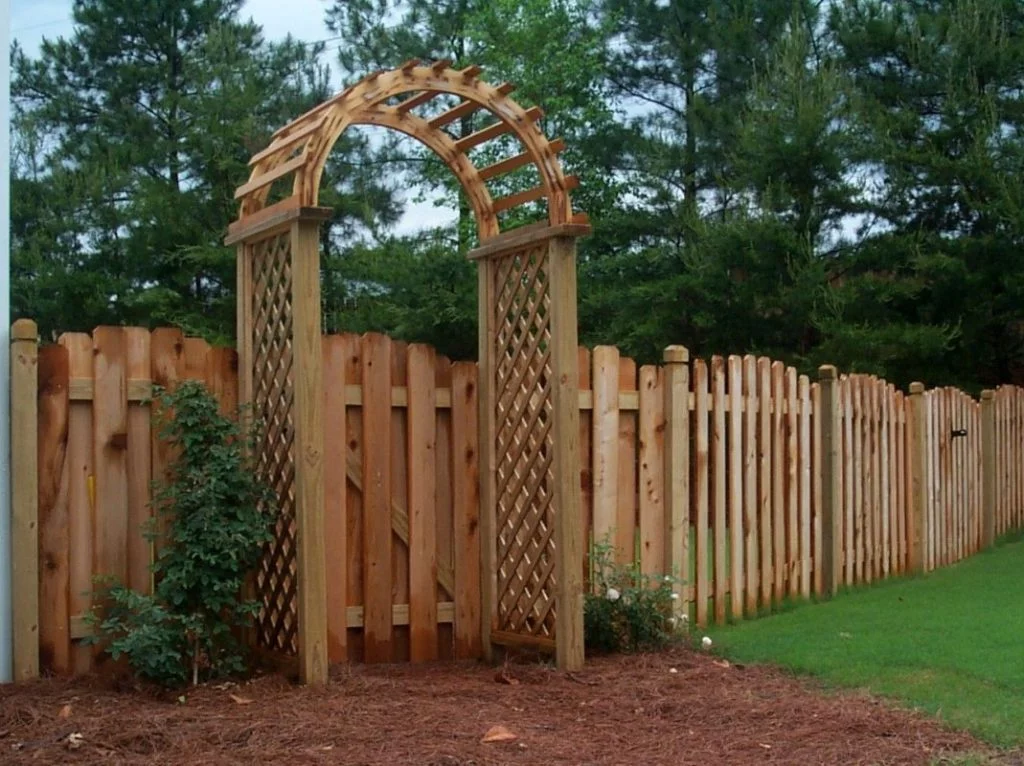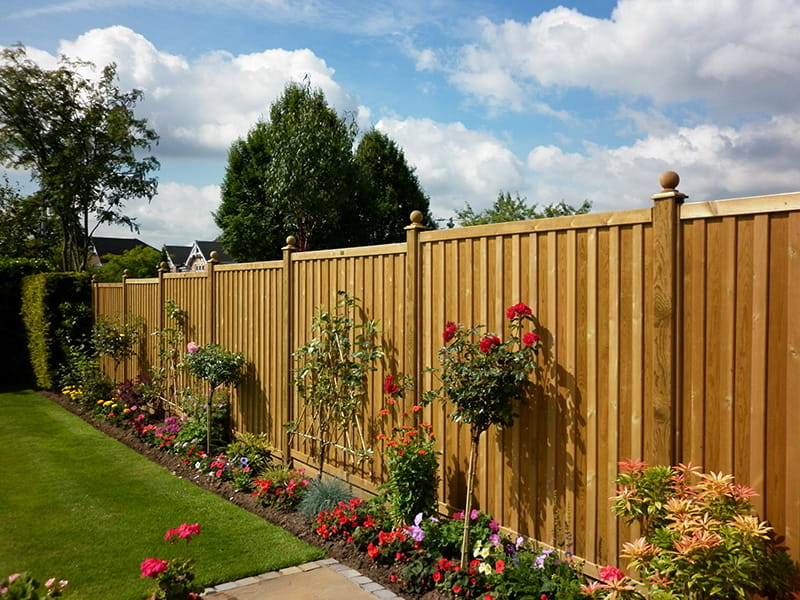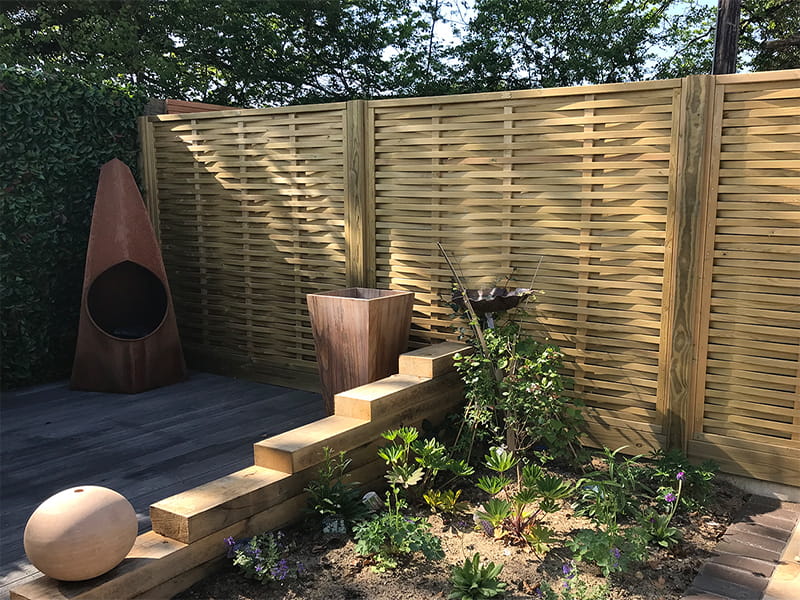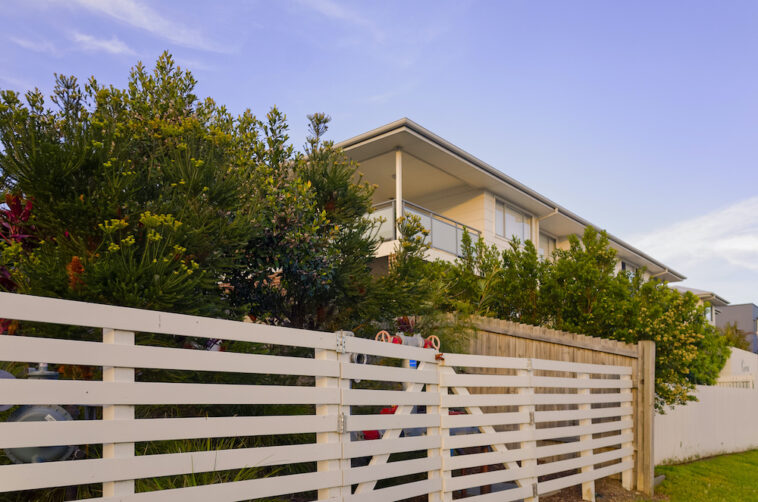If the condition of your fence is poor, it needs to be repaired or replaced. Your fence frames your property, and you wouldn’t want to frame a beautiful image in a damaged picture frame. But occasionally, something isn’t worth repairing. Depending on the type of fence and the degree of damage, replacing your fence—or at least a section of it—might be less expensive than major repairs.
Choosing the Repair Expert for Fence Replacement or Repair
With DIY fence kits, most homeowners can perform simple repairs. You should work with a fence contractor for anything else. Exterior home remodeling contractors can help you replace or repair your fence. Generally speaking, your fence contractor needs to be insured against general liability and hold a general contractor’s license.
How to Know When to Repair Your Fence

Acute damage and chronic damage are the two categories of fence damage. The stuff that ends there is known as acute damage. For instance, the panels get damaged when a tree branch falls on your fence. An ongoing source of damage is referred to as chronic damage. For instance, decaying wood or termites.
A fence with minor acute damage can usually be repaired, though some repairs might only be a short-term solution. Repairing chronic damage is more difficult if the underlying cause is not addressed.
Typical Fence Problems and Fixes
There are several common problems associated with different fence materials. At some point, even the most expensive fence will require maintenance. This is what to anticipate.
Minor repairs such as refinishing mild rust and corrosion or swapping out broken gate hinges can be done by hand. Rails that are only slightly bent may even be hammered back into position. If the concrete leaning post is not damaged, you can also DIY fix a sagging gate or reset leaning posts in concrete.
How to Know If Your Fence Needs to Be Replaced
Anything more than minor damage usually indicates that the fence needs to be replaced. It’s only sometimes necessary to replace the entire fence, though. You can replace a post, picket, or panel. Remember that color matching is challenging. Painting your fence might be necessary to hide the replacement section.
These are seven reasons to replace all or a portion of your fence

1. There is rot in your fence
To stop the rot from spreading to the rest of the panel, you can occasionally cut off a small section of it, but doing so will leave a hole in your fence. It is best to replace the rotten portion of a post or panel before it spreads further if more than 30% of it is rotten.
2. The Leaning Fence
This kind of structural issue usually indicates that the fence posts were not installed correctly or were damaged. You might want to have the entire fence replaced if there are multiple sagging posts. You can install new fence posts in their place and remove the old ones if there are just a few. Although braces are included in fence post repair kits to strengthen damaged posts, this is only a stopgap measure.
3. Damaged or missing fence boards
Your fence is made up of posts. You can replace a few broken or missing fence boards, or “pickets,” without having to replace your entire fence as long as your posts are sturdy. However, consider a complete replacement if there are problems with your posts and boards.
4. Your Fence Is Messy or Broken
If the majority of your fence is falling, has severe damage, or has extreme wear and tear, it’s time for a replacement. The typical fence only lasts 15 to 20 years, but if it’s made of untreated wood, it might only last for a while.
5. There’s an Infestation on Your Fence
Before it causes significant damage, an insect infestation can usually be eliminated, but once damage has been done, the wood is usually irreparable. Make sure the infestation is eradicated and replace the damaged area if a wood-eating insect has damaged more than 30% of a post, picket, or board.
6. Your Privacy Wall Isn’t Working
If your fencing isn’t functioning as it should, you should replace it. Replace your privacy fence with one that better blocks the view if it leaves little room for your neighbor’s imagination.
7. You Wish to Replace the Material on Your Fence
There are various ranges of quality for fence materials. Even though you may have started your backyard design project on a tight budget, you can always replace your fence at a later date to upgrade.
Choosing Fence Materials for Your Climate

Your local climate plays a critical role in selecting fence materials. In areas with extreme weather, like heavy rain, snow, or strong sun, vinyl or metal fences often perform better than wood. Opt for materials that can endure your specific weather conditions to ensure longevity and reduce maintenance needs.
The Value of Professional Fence Inspection
Before deciding on your fence, a professional inspection is highly recommended. Skilled inspectors can accurately evaluate damage, uncover hidden problems, and offer tailored advice. Their expertise helps you make an educated choice between repairing or replacing your fence, ensuring thorough attention and preventing overlooked issues.
Navigating Local Regulations for Fencing
Be aware that local building codes and regulations significantly influence your fencing decisions. These rules may specify fence height, materials, style, and placement relative to property lines. Additionally, homeowner association guidelines might be applicable. Compliance with these regulations is crucial to avoid legal complications and to guarantee your fencing project adheres to all standards.
Customizing Your Replacement Fence

If you’re replacing a fence, consider the array of customization options available. You can select from different styles, heights, and decorative features to complement your property’s look. Customization not only fulfills functional needs but also elevates your outdoor space’s aesthetic appeal. Consulting with professionals can help you design a fence that aligns with your preferences and needs.
Conclusion
Do you need help with replacing or repairing your fence? Many homeowners begin by tallying the expenses. In the short run, painting or fixing a fence is simpler and less expensive than replacing it entirely. Replacing your fence is the better option sometimes. Your fence has outlived its usefulness and will require significant maintenance going forward, or you would like to change the design or positioning of your fence.




